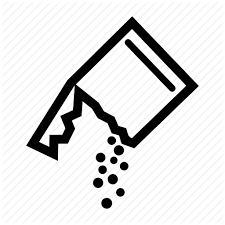EzyColon Oral Powder
Indications
Sodium Picosulfate, Magnesium Oxide and Anhydrous Citric Acid oral solution/powder for oral solution is indicated for cleansing of the colon as a preparation for colonoscopy in adults and child 9 years & above. Also used in barium enema x-ray exam or surgical procedures that require a clean colon.
Dosage And Administration
There are two dosing regimens, each requires two separate dosing times:
Split-Dose Dosing Regimen (Preferred Method): The Split-Dose regimen is the preferred dosing method. Instruct patients to take two separate doses in conjunction with fluids, as follows:
- Take the first dose (1 bottle/1 sachet) during the evening before the colonoscopy (e.g., 5:00 to 9:00 PM) followed by 1200 ml liquid (5x 240 ml) drinks (using provided measuring cup) of clear liquids before bed. Consume clear liquids within 5 hours.
- Take second dose (1 bottle/1 sachet) the next day approximately 5 hours before the colonoscopy followed by at least 720 ml (3x240 ml) drinks of clear liquids before the colonoscopy. Consume clear liquids within next 5 hours but atleast 2 hours before the time of the colonoscopy.
Day-Before Dosing Regimen (Alternative Method): The Day-Before regimen is the alternative dosing method for patients for whom the Split-Dosing is inappropriate. Instruct patients to take two separate doses in conjunction with fluids, as follows:
- Take the first dose (1 bottle/1 sachet) in the afternoon or early evening (e.g., 4:00 to 6:00 PM) before the colonoscopy followed 1200 ml (5x 240 ml) using provided measuring cup of clear liquids before the next dose. Consume clear liquids within 5 hours.
- Take the second dose (1 bottle/1 sachet) approximately 6 hours later in the late evening (e.g., 10:00 PM to 12:00 AM), the night before the colonoscopy followed by at least 720 ml (3x240 ml) drinks of clear liquids before bed. Consume clear liquids within 5 hours.
- Additional fluids must be consumed after every dose in both dosing regimens.
- Instruct patients to consume only clear liquids (no solid food or milk) on the day before the colonoscopy up until 2 hours before the time of the colonoscopy. Instruct patients that if they experience severe bloating, distention, or abdominal pain following the first dose, delay the second dose until their symptoms resolve.
Interaction
- Drugs that may increase risks of fluid and electrolyte abnormalities: Use caution when prescribing this solution for patients with conditions or who are using medications that increase the risk for fluid and electrolyte disturbances or may increase the risk of seizure, arrhythmias and prolonged QT in the setting of fluid and electrolyte abnormalities. This includes patients receiving drugs which may be associated with hypokalemia (such as diuretics or corticosteroids, or drugs where hypokalemia is a particular risk, such as cardiac glycosides) or hyponatremia. Use caution when this solution is used in patients on nonsteroidal anti-inflammatory drugs (NSAID) or drugs known to induce Antidiuretic Hormone Secretion (SIADH), such as tricyclic antidepressants, selective serotonin re-uptake inhibitors, antipsychotic drugs and carbamazepine, as these drugs may increase the risk of water retention and/or electrolyte imbalance.
- Tetracycline and fluoroquinolone antibiotics, iron, digoxin, chlorpromazine and penicillamine, should be taken at least 2 hours before and not less than 6 hours after administration of this solution to avoid chelation with magnesium.
- Antibiotics: Prior or concomitant use of antibiotics with this solution may reduce the efficacy of this solution.
Contraindications
This solution is contraindicated in the following conditions:
- Patients with severely reduced renal function (creatinine clearance less than 30 ml/minute) which may result in accumulation of magnesium.
- Gastrointestinal obstruction or ileus.
- Bowel perforation
- Toxic colitis or toxic megacolon
- Gastric retention
- An allergy to any of the ingredients in this solution.
Side Effects
Most common adverse reactions (>1%) are nausea, headache and vomiting (abdominal bloating, distension, pain/cramping and watery diarrhea not requiring an intervention were not collected).
Pregnancy And Lactation
Pregnancy Category B. There are no adequate and well-controlled studies in pregnant women. Because animal reproduction studies are not always predictive of human response, this solution should be used during pregnancy only if clearly needed. It is not known whether this drug is excreted in human milk. Because many drugs are excreted in human milk, caution should be exercised when this solution is administered to a nursing woman.
Precautions And Warnings
Serious Fluid and Serum Chemistry Abnormalities, Advise patients to hydrate adequately before, during and after the use of this solution. Use caution in patients with congestive heart failure when replacing fluids. If a patient develops significant vomiting or signs of dehydration including signs of orthostatic hypotension after taking this solution, consider performing post-colonoscopy lab tests (electrolytes, creatinine and BUN) and treat accordingly. Fluid and electrolyte disturbances can lead to serious adverse events including cardiac arrhythmias or seizures and renal impairment. Fluid and electrolyte abnormalities should be corrected before treatment with this solution. There have been reports of generalized tonic-clonic seizures with the use of bowel preparation products in patients with no prior history of seizures. The seizure cases were associated with electrolyte abnormalities (e.g. hyponatremia, hypokalemia, hypocalcemia and hypomagnesemia) and low serum osmolality. The neurologic abnormalities resolved with correction of fluid and electrolyte abnormalities.
Therapeutic Class
Enema & bowel cleansing solution,
Use in special populations
Pediatric Use: The safety and effectiveness of this oral solution in pediatric patients has not been established.
Renal Insufficiency: Patients with impaired renal function or patients taking concomitant medications that may affect renal function (such as diuretics, angiotensin-converting enzyme inhibitors, angiotensin receptor blockers or patients of the importance of adequate hydration before, during and after the use of this oral solution. In patients with severely reduced renal function (creatinine clearance <30 mL/min), accumulation of magnesium in plasma may occur.
Storage Conditions
Store at temperature 15°-30°C.
